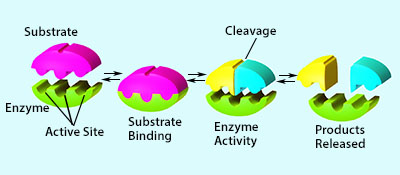Adhesion Molecules
Cell adhesion molecules (CAMs) belong to four different families: immunoglobulin (Ig) superfamily, integrins, cadherins, and selectins. CAMs mediate cell-to-cell and/or cell-to-extracellular matrix (ECM) interactions that can be either adhesive or inhibitory in nature. These interactions can also be associated with changes in downstream signaling pathways, cytoskeletal reorganization, or gene expression.
View our recombinant adhesion molecules.
 Login / Register
Login / Register 









Follow Us